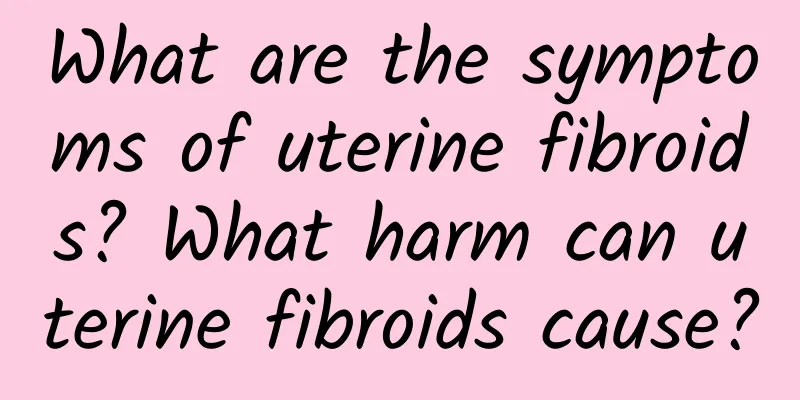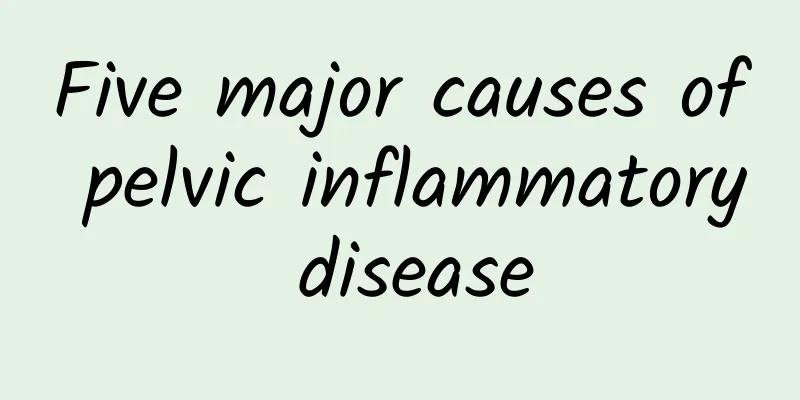What medicine is used to treat uterine fibroid calcification? What medicine is good for uterine fibroid calcification?

|
Uterine fibroids are a common benign tumor in women, and many women will suffer from uterine fibroids. Uterine fibroid calcification refers to the calcification of certain parts inside the fibroids, which is also relatively common in clinical practice. So, what drugs can treat uterine fibroid calcification? Let's learn about the popular science knowledge of the keyword "What drugs can be used to treat uterine fibroid calcification". First of all, it should be made clear that uterine fibroid calcification is a relatively mild condition and most of the time does not require special treatment. In general, doctors will decide whether treatment is needed based on the size and location of the fibroids and the severity of the symptoms. If the symptoms of uterine fibroid calcification are not obvious and the quality of life is not affected, doctors will often choose observation and treatment, and follow up to observe the development of the disease. However, if the calcification of uterine fibroids causes significant discomfort, such as pain, abnormal menstrual bleeding, etc., the doctor may consider taking medication. Common treatments include the following: 1. Estrogen drugs: Estrogen can promote the proliferation of the endometrium, thereby reducing the discomfort caused by uterine fibroid calcification. Common estrogen drugs include birth control pills, estrogen replacement therapy, etc. However, these drugs cannot directly cure uterine fibroid calcification, but can only temporarily relieve symptoms. 2. Nonsteroidal anti-inflammatory drugs: These drugs can relieve the pain and inflammation caused by calcification of uterine fibroids. Common nonsteroidal anti-inflammatory drugs include ibuprofen, paracetamol, etc. It should be noted that long-term and large-scale use of nonsteroidal anti-inflammatory drugs may cause a series of adverse reactions, so you need to follow the doctor's instructions when using them. In addition to drug treatment, surgical treatment can also be chosen for some patients with obvious symptoms of uterine fibroid calcification. Surgical methods include uterine fibroid stripping, myomectomy, etc. These surgeries can directly remove or strip uterine fibroids, thereby relieving symptoms. However, it should be noted that surgical treatment is generally suitable for symptomatic cases. For patients with asymptomatic uterine fibroid calcification, surgery is not a necessary option. Finally, let's talk about the popular science knowledge of "what medicine is used to treat uterine fibroid calcification". In clinical practice, there is no specific drug that can directly cure uterine fibroid calcification. The current treatment methods mainly use two ways to relieve the patient's discomfort: drug control of symptoms and surgical treatment. Therefore, if you are diagnosed with uterine fibroid calcification, you should seek medical attention in time, follow the doctor's advice, choose the appropriate treatment method, and follow up regularly to observe changes in the condition. In short, for the treatment of uterine fibroid calcification, the appropriate method should be selected according to the specific situation. Drug treatment can relieve symptoms, and surgical treatment can directly relieve symptoms. The most important thing is that patients should maintain good living habits, stay healthy, avoid excessive fatigue and mental stress to prevent the occurrence of uterine fibroid calcification. If any discomfort occurs, seek medical attention in time and follow the doctor's guidance to better control the disease and improve the quality of life. I hope this article can help everyone understand the popular science knowledge of "what medicine to use to treat uterine fibroid calcification". |
Recommend
High school students become turtles! Lack of fruits and vegetables and exercise
High school students are growing and should consu...
What are the quick ways to relieve pain in women with dysmenorrhea?
What are some quick ways to relieve menstrual pai...
One person suffers a stroke every 10 minutes! Nutritionist Lin Shihang: 4 dietary tips to avoid the threat of stroke
The arrival of low temperatures and cold fronts i...
Analysis of the symptoms of pelvic inflammatory disease and pelvic pain
In today's society, there are more and more p...
Should your knees not go beyond your toes when squatting? Doctor God Answers...
Whether the knees can go beyond the toes when squ...
What are the symptoms of different types of vaginitis?
Autumn is a beautiful season, but some women cann...
Recurrence of pelvic effusion after surgery
I had a history of pelvic effusion many years ago...
Sports girls must know! These 10 good habits must be developed
The weather is getting cooler, and although we ha...
Early signs of ovarian cysts
Ovarian cysts are a type of ovarian tumor in a br...
What are submucosal uterine fibroids? What are the symptoms of submucosal uterine fibroids?
In recent years, uterine fibroids are a common gy...
What should women pay attention to in preventing cervical erosion? Five precautions to prevent cervical erosion
Things to note for preventing cervical erosion an...
Will reduced menstrual flow after miscarriage affect future pregnancy?
Will reduced menstrual flow after miscarriage aff...
How to perform surgery for uterine fibroids? Postoperative care measures for uterine fibroids
Uterine fibroids are usually treated with surgery...
Let's analyze the causes of adnexitis in detail.
Although women have heard of adnexitis, they stil...
Apples are delicious and can help you lose weight easily
[Key Points]: It is well known that apples are go...









